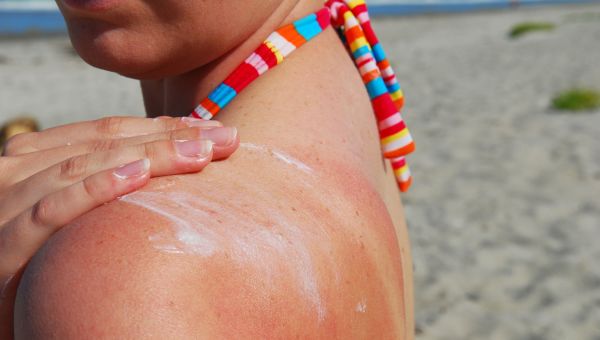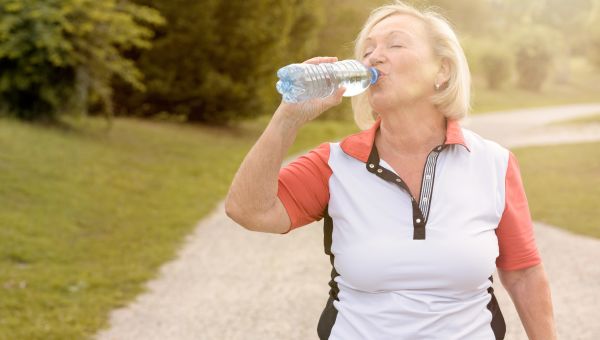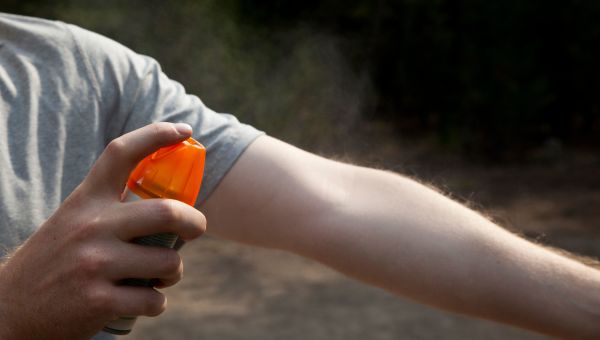6 summer hazards to beware
Don't let these dangers ruin your fun in the sun.

After a long winter of being cooped up indoors, it’s exciting to finally get outside and have some fun in the sun. But not so fast! Summertime is often known as trauma season in emergency departments. “People are just out more, so there’s more exposure,” says Carlo Reyes, MD, an emergency department physician at Los Robles Hospital and Medical Center in Thousand Oaks, California.
Among the warm weather culprits are bug bites, bad burgers and burns. Read on to learn more about these and other potential dangers of summer.

Food Poisoning
No summer get-together is complete without a sizzling grill stacked with burgers and hot dogs. Just make sure you don’t serve your guests a helping of E. coli or salmonella. According to the U.S. Department of Agriculture (USDA), food poisoning cases spike in the summer due to conditions that allow bacteria to breed. The grill isn’t the only place for potential contamination. Your favorite cookout salads could harbor bacteria, especially if left out in the hot sun for too long.
Dr. Reyes says foodborne illnesses are caused either by the bacteria themselves or by the toxins they produce. Refrigerate food until you’re ready to eat, wash vegetables and cook meat to a safe temperature: 160°F for burgers and 165°F for poultry and hot dogs.

Sunburn
If you’re going to spend the day in the sun, don’t forget the sunscreen. “It’s so common that people forget to protect their skin with sunblock,” says Reyes. “Not only that, sunblock needs to be reapplied frequently.” Apply every two hours, but more frequently if you are swimming or sweating.
Sun protection goes beyond choosing an SPF—although anything over 30 is your best bet. Wear a hat and sunglasses to further protect your face. Consider light layers as well.
Most cases of sunburn don’t need a trip to the ER, says Reyes, but if you have intense pain, fever and chills, blistering, headache, confusion or fainting, get to the hospital ASAP.

Dehydration and Heat Stroke
It’s vital to stay cool in hot weather. Dehydration can quickly turn into conditions like heat cramps, heat exhaustion and heatstroke, all potentially serious, especially to children and the elderly. While all three have similar symptoms like thirstiness, dizziness, headache and high body temperature, heat stroke can also cause confusion, decreased blood flow, rapid pulse and breathing and organ failure, says Reyes.
“It occurs at a point where the body has a more difficult time regulating its temperature. The thermostat isn’t functioning.” For cramps and exhaustion, get out of the sun and get some rest and fluids immediately; for heat stroke, call 911 and try to cool off until help arrives.

Drowning
According to the Centers for Disease Control and Prevention (CDC), there’s an average of 4,000 drownings in the U.S. every year. It’s also one of the most common causes of death in children.—it’s the second leading cause of death in children 15 years of age and under. Even scarier is that a drowning can be hard to spot.
“You don’t usually have someone screaming and flapping in the water and someone hears them,” says Reyes. Instead drownings tend to occur quietly. Be alert if you see an unresponsive swimmer or one appearing to climb an invisible ladder, which is a silent sign of drowning.
If you see someone drowning, call 911 right away and give CPR, Reyes says. Even if the person comes to, they’ll still need to go to the hospital; they could have damage to the brain or lungs.

Bites and Stings
When the sun comes out, so do the creepy-crawlies. Certain ticks can carry Lyme disease, so they should be removed with tweezers. For bee and wasp stings, use a cool compress on the area, plus an over-the-counter antihistamine and painkiller, says Reyes. “The one that requires an immediate trip to the ER is one where the reaction affects either breathing or all the skin on the body. It’s a systemic reaction called anaphylaxis,” he says.
To prevent many of these bites in the first place, use a bug spray with 10 and 35 percent DEET, 7 or 15 percent picaridin or IR3535. Spray on exposed skin and over clothes. If you are planning on a hike, consider clothing pre-treated with permethrin, a chemical that kills ticks. Finally, be certain to check for ticks after any time outdoors, including unexpected areas like arm pits, behind your ears, on your scalp and between toes.
And if you’re unlucky enough to be stung by a jellyfish, don’t bother with a certain home remedy. “Urine doesn’t work,” says Reyes. “Jellyfish stings are treated with vinegar.”

Bike Safety
According to the CDC, bike death rates are the highest among those aged 15 to 19 and over 40 years old. Before you take your bicycle for a spin, make sure you’ve got a helmet and bright or reflective clothes.
“The number one thing to remember about bike safety is the importance of wearing a helmet.” A helmet can save you a trip to the hospital or worse. You should also know you’re almost invisible to cars, Reyes says. “Wear very visible clothing with reflective or loud colors. Most accidents I see, no one even saw the bike.”
Follow these helpful tips to stay safe all season—and more importantly, as far away from the ER as possible.
More On


video

article

slideshow


video


video
